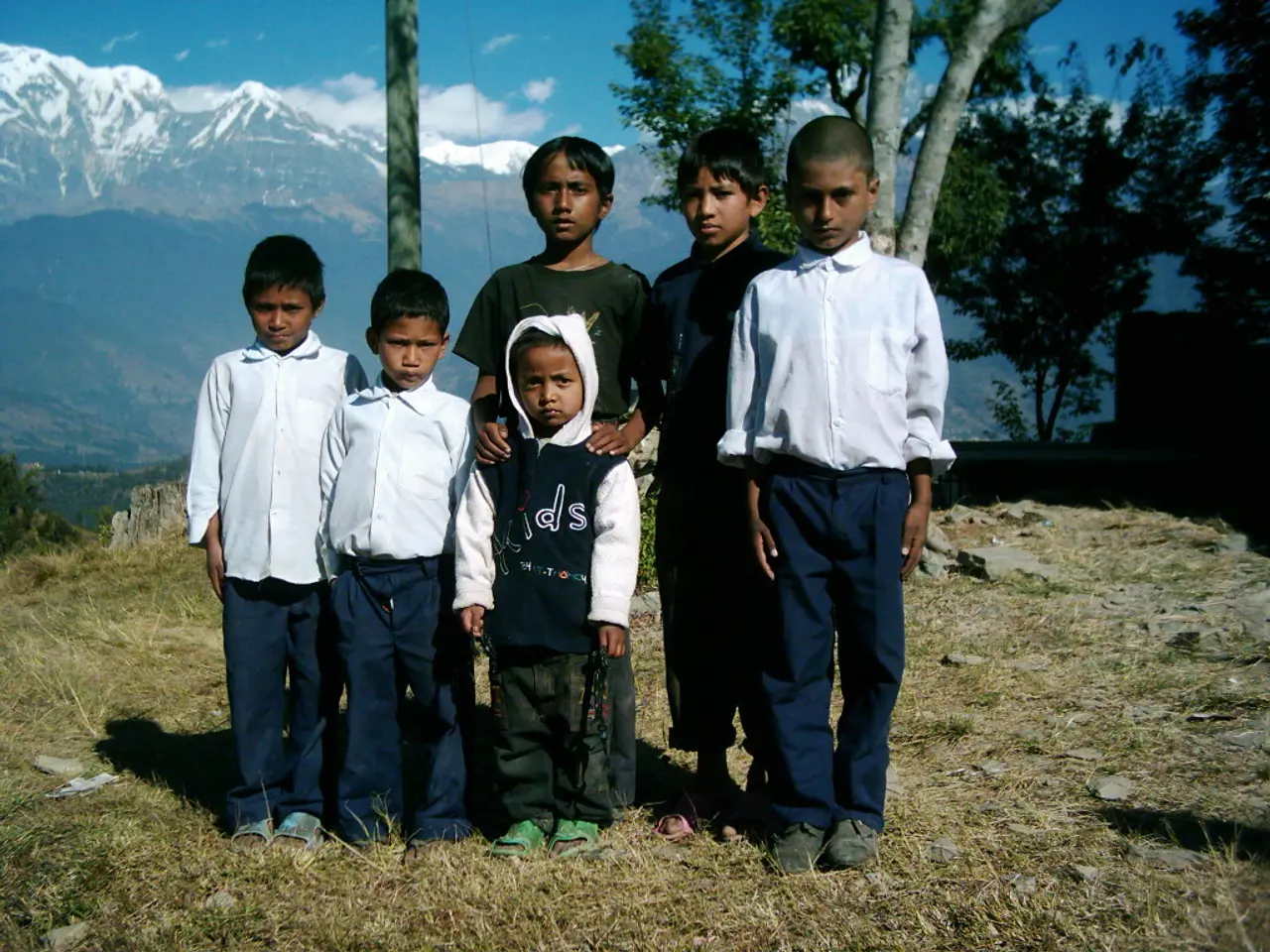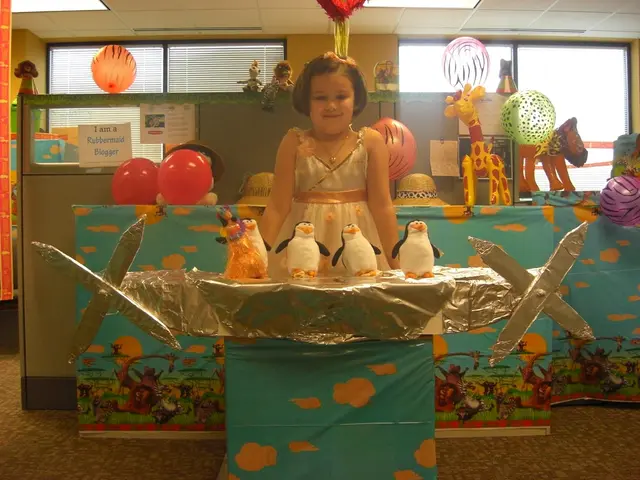Cultivating Green Thumbs with Little Helpers: A Parent's Guide to Child-Friendly Gardening
Gardening with children offers a unique opportunity for a closer connection to nature and teaches the importance of being connected with the soil. This activity, while taking time, can be made exciting for kids through various activities such as watering, weeding, drawing DIY labels, decorating the garden, watching gardening how-to videos, and planning recipes for harvested vegetables and fruits.
The Impact on Child Development
Gardening positively impacts children's development by fostering physical, emotional, cognitive, social, and environmental skills while shaping their perception of the natural world. It offers hands-on experiences that promote responsibility, creativity, problem-solving, and a deeper understanding of ecosystems.
- Physical Development: Activities like digging, planting, and watering enhance gross motor skills, hand-eye coordination, and fine motor control important for later skills like writing.
- Emotional Growth: Children experience joy in nurturing plants, learn to cope with success and failure through plant growth cycles, and derive satisfaction from harvesting and tasting their produce.
- Cognitive and Creative Development: Gardening stimulates sensory awareness, spatial reasoning, and mathematical skills like measuring and counting seeds. The natural, varied environment fosters creativity and divergent thinking by allowing imaginative play and problem-solving.
- Social Skills: Working together in gardens encourages communication, cooperation, leadership, and negotiation.
- Environmental Awareness: Nurturing plants and observing life cycles helps children understand ecosystems and develop a sense of environmental stewardship and connection to the natural world.
- Responsibility and Self-esteem: Caring for a garden plot teaches responsibility, accountability, and pride in their accomplishments, contributing to character development and confidence.
Getting Started with Gardening with Children
- Start Small: Give each child a small dedicated plot or container to care for, labeled with their name, to encourage ownership and pride.
- Use Child-Sized Tools: Provide tools sized for children to make gardening easier and more enjoyable.
- Choose Easy-to-Grow Plants: Select fast-growing or hardy plants like sunflowers, carrots, or herbs that give quick, rewarding results.
- Integrate Learning: Use gardening time to explore concepts like counting seeds, measuring plant growth, reading about plants, and discussing life cycles.
- Encourage Sensory Exploration: Let children touch soil, smell flowers, and observe insects and butterflies to deepen sensory and scientific awareness.
- Make it Fun and Creative: Combine gardening with imaginative play, stories, or art to stimulate creativity and keep children engaged.
- Be Patient and Supportive: Help children learn to cope with setbacks in gardening, such as plants not growing well, to build resilience.
- Spend Regular Time Outdoors: Incorporate gardening as part of daily or weekly outdoor play and learning routines.
By engaging children in gardening, caregivers provide a rich, multi-sensory learning experience that not only develops fundamental skills but also nurtures a lifelong love and respect for nature. Gardening doesn't have to be perfect or require a big backyard or complete set of tools to start. In fact, as Richard Louv, co-founder of the Children & Nature Network, suggests, children's lives could be more immersed in nature than in technology. Engaging in gardening can foster a sense of nurturing and connection with the natural world, providing a glimpse into a life more immersed in nature.
References:
[1] Connelly, L. (2018). The Benefits of Gardening with Children. Educational Herald. [2] Jones, L. (2016). Losing Eden: Why Our Minds Need the Wild. HarperCollins Publishers. [3] Louv, R. (2008). Last Child in the Woods: Saving Our Children from Nature-Deficit Disorder. Algonquin Books. [4] National Wildlife Federation. (2017). Children & Nature Network. [5] Rimm-Kaufman, S. E., & Anderson, C. (2012). Early Childhood Education and Development: A Global Perspective. Routledge.
Read also:
- Wawa avian tests positive for West Nile disease
- The market for Kraft Lignin is projected to increase at a rate of 7.2% each year until 2034.
- Revising hair care practices with cynorrhodon extracts for addressing hair fragility
- Filipino Card Games Find Their Home at Gamezone, Offering an Unmatched Experience!







